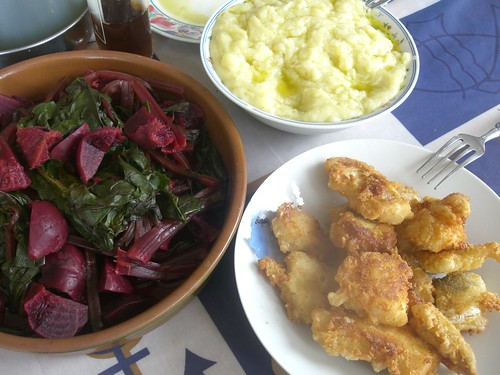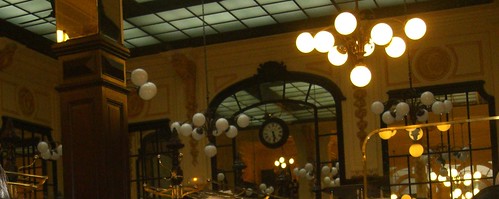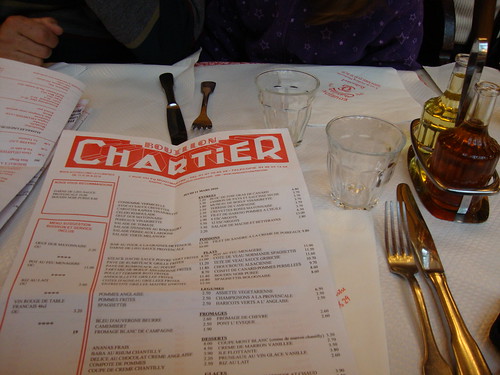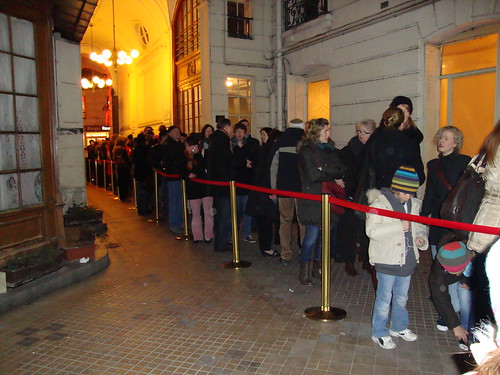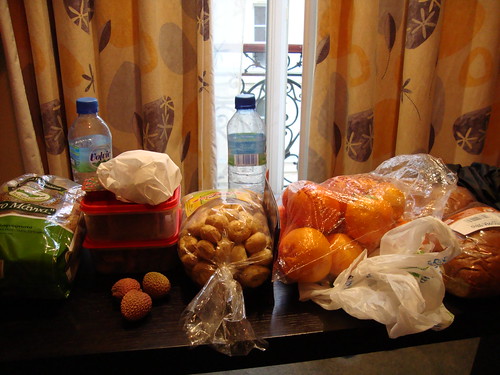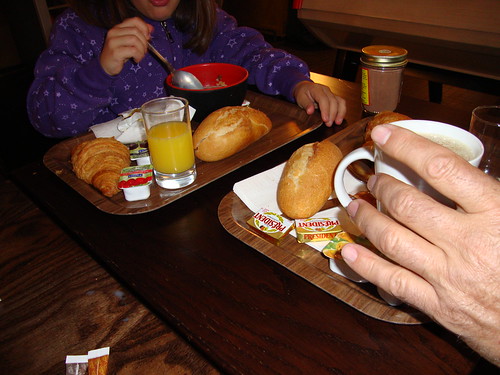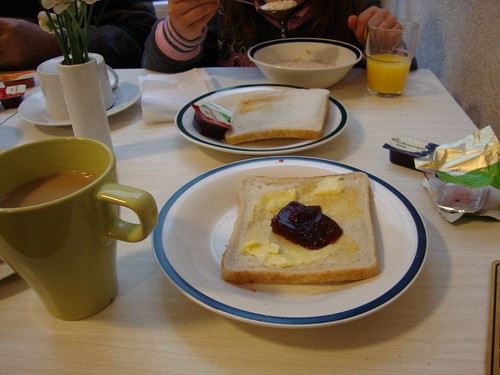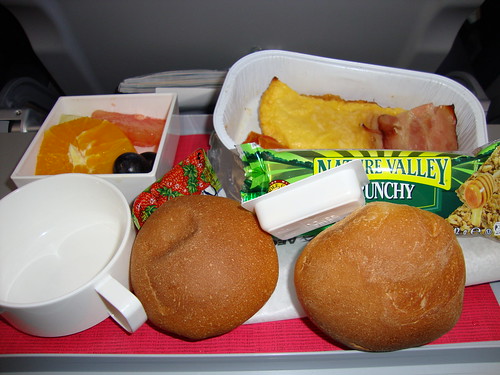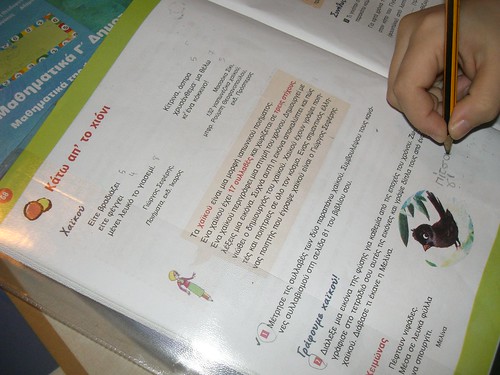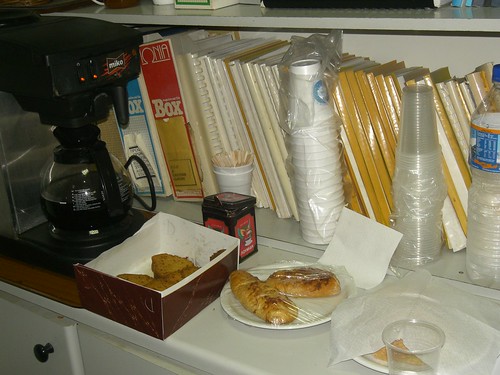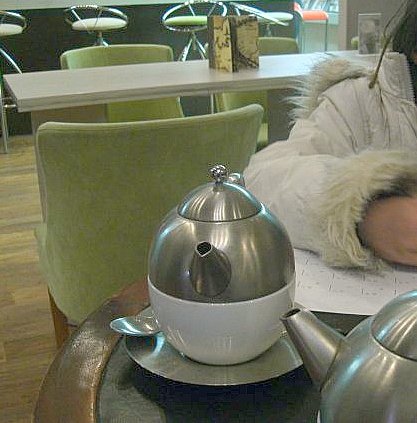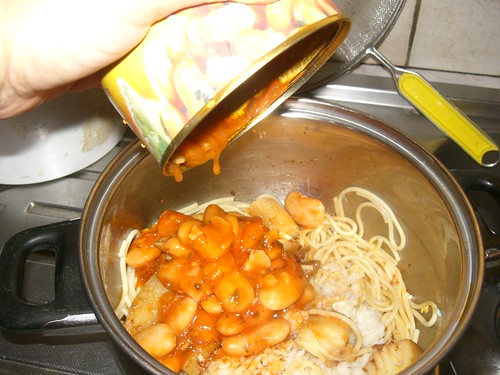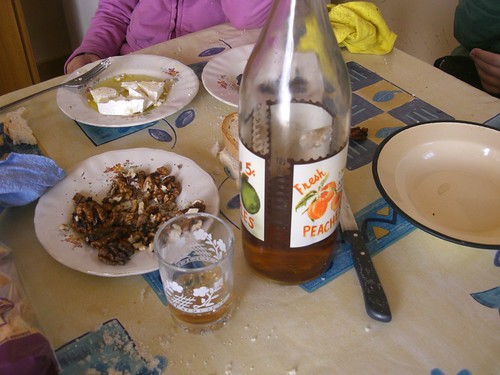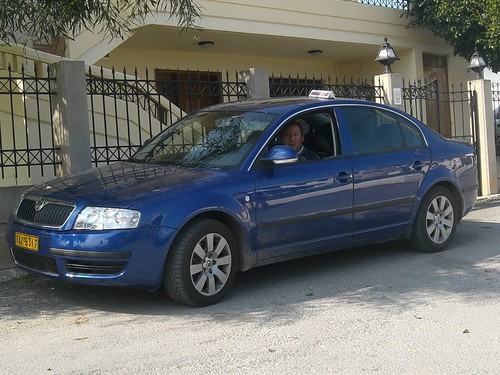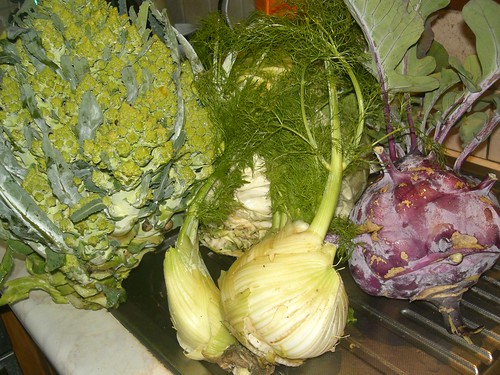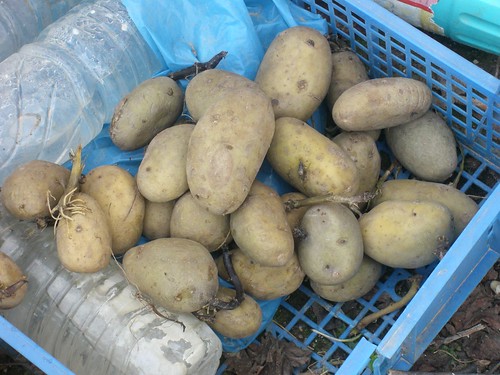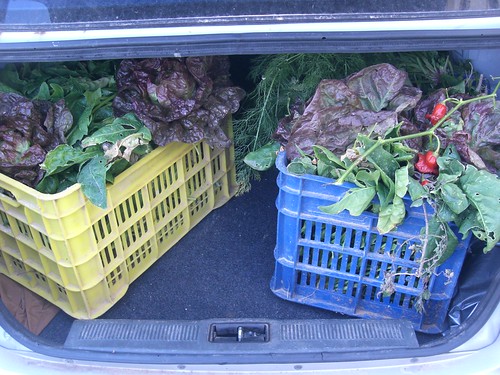Raising and educating children has never been easy. With the freedom of movement among EU nations, enabling its citizens to live and work in any of its 27 member states, people are now able to compare and contrast their own education system with the one their children are attending, but are not always able to make sense of it or see the benefits. I recently came across a Crete-UK forum discussion which highlighted this issue; the inspiration for the post came from my son's school homework.
"Dear Agony Aunt," writes GoldenSyrup from the UK, "Is the certificate/diploma that students receive at the end of (Greek) school recognised in other countries? As the mother of a 7-year-old who has long school days and at least 2 hours of homework most nights, I am concerned that all this work will not result in anything other than a piece of paper that is only recognised in Greece. I have found out that if both parents are foreign (ie not Greek) then the child is considered to be 'foreign' even if he has been born and grew up here. This it seems has implications for university entrance..."
The seven-year-old is probably in 2nd-grade. The parents are probably both non-Greeks, living and/or working in Greece. They may not be able to read Greek fluently, and therefore cannot help their child with their homework. It isn't clear what the mother's concern is: is she worried that her child is learning something useless (non-transferable Greek-language skills), or is she worried that her child is being over-worked without any guarantee that this 'hard work' will be useful in the future?
Firstly, she has overlooked the fact that since both Greece and the UK are in the EU (well, so far, anyway, if you get my gist), then it is highly
unlikely that there is no provision made for equating school qualifications between the countries.
Oxford University, for example, states clearly what is accepted by them from Greek students*. Secondly, there is no such thing as a free lunch; her child is being occupied more productively in Greece than what would be the case for a child of this age in the UK.. Too much study and not enough play makes Jack a dull boy, you say. In a country like Greece (and especially in Crete), there's plenty of sunshine and free time for a seven-year-old to revel in - for a start, summer holidays last 12 whole weeks, not to mention all the other religious/national (and strike) holidays in between. In any case, if there were too much play and not enough study, then Jack would have all the leisure time he needs to collect plenty of
ASBO's. Take your pick.
It's not just foreign mothers living in Greece who complain about the amount of homework their children have to do at school; it's also Greek parents. When the old-fashioned parrot-style rote learning system changed in Greece, which the parents of our youngsters' generation were used to themselves (and we all know how comfortable we feel with the status quo), everyone suddenly felt overwhelmed by the new syllabus. For a start the set books changed; instead of learning to count up to 20 in Grade 1 (!?!) children were expected to learn to count up to 100 (something which most kids were probably able to do in their kindergarten years anyway), and children are expected to be able to understand visual symbols very early on in their schooling, such as those employed by well known public companies like, for example:
ΔΕΗ,
ΟΤΕ,
ΔΕ.ΔΙ.ΣΑ, all acronyms of state-owned enterprises, and therefore children see the bills coming into the house with their logos (Greece hasn't really begun a transition yet from a 'bills' culture to an online-payments one).
Here's an example of a how a Greek mother reacted to her child's homework. An Athenian radio announcer was disgusted that her child had to write the full names of the above-mentioned SOE's (I know the exercise she is talking about - it appears in the set books for Grade 2), complaining that her child could not differentiate between the different ways to spell the 'ee' sound in Greek (which is nothing compared to the number of ways to spell the 'ee' sound in English - wait till it starts learning that one!). She needn't have bothered to do that in the first place: she should have given her child a bill from one of those companies, and got them to copy the name of the SOE, or searched for it online, or better still, got her child to search for it online. This doesn't mean that the mother wasn't being a good teacher to her child - she is after all the mother, and not the teacher; maybe the teacher should have taken the time to explain to her class of children how to go about this exercise independently, without making mummy go crazy...
As a mother with children in primary school, I can understand the UK mother's (albeit misinformed) concern. She probably came from a more liberal educational background (like me), where children were not required to do a lot (or any) homework when they were as young as seven, where the theoretical importance of a playful youth (despite the higher incidence of social curses such as teenage pregnancy and binge-drinking) took priority over the three R's. But things are slowly changing from the parrot-learning days of the Greek education system, and even though it may sometimes seem that children are doing very repetitive exercises with little substance, the fact is that there is room for great creativity in the classroom within a structured programme. The main difference between the Greek education system and the Western one is that parents have a greater influence in their children's schooling in the former. Greek parents often act as guidance counsellors; these professionals are often missing from Greek schools due to mismanagement, lack of funds and other problems of Greek infrastructure. Greek parents, therefore, often take a great interest in their children's learning paths - they always want the best for their child, no matter how educated or rich they may be
**.
One of the problems in the Greek education system is that it is very competitive. Children are encouraged to get straight A's from the day they enrol at primary school. It may sound like an impossible task to get very young pupils to learn to sit on a chair and hold a pencil in their hand for what seems like hours, conjugating verbs and
declining nouns...,
... writing word families...,
... and doing sums...,
... among other activities, but this is what I have seen my kids doing for the last three years, since they started primary schools. Depending on their teacher, a child may have half an hour to two hours of homework on most nights. You must be thinking that this is too much, but you will probably not realise that a typical school day for a seven-year-old starts at 8.10am and finishes at 12.25pm, with two short breaks in the day. The homework they are doing is what they would have been doing in class, were the Greek school day longer.
*** Children whose parents work and cannot pick them up at midday stay on at school at the all-day program, where they have an opportunity to complete their homework with the help of another (different) teacher, and they often go home with most of their homework assignments finished.
Some children are slower writers, others are slower thinkers; some children pick up the rules more quickly of being in a formal educational environment, while others need more time to acclimatise from the transition of kindergarten (no books or notebooks, not even a pencil case) to primary school (up to ten set books and half a dozen notebooks in the first three grades). But eventually, they realise what is expected of them. Some children show great skill at memorising facts and figures, while others don't. This is normal in most school environments all around the world. Where Greece differs from the Western system on this point is that Greek schools award academic achievement and very little else.
It's true that most of the homework exercises are based on rote learning, but my only real quibble is that most of the time, most teachers will only work with material in the set textbooks (Language, Mathematics, My Environment, each one issued with a coursebook and exercise book), and 'blindly' hand out photocopied material of the exercises covered in the day's lesson from the set books to be done as homework; these photocopies sometimes contain typos, which shows that the teacher is not reading them herself to check if they are do-able, before she hands them out to the pupils. Therefore, if you have learnt the material in the book and the photocopies, then you are considered an 'excellent' student. A student whose knowledge is beyond the book is classified as a genius, even though their knowledge may actually be bookish rather than showing any powers of reasoning or creativity. That's why a lot of Greek kids get classified as geniuses these days - it's easier to know (or find out about) things now than it was in the past. Greek parents rather than the state are usually responsible for that extra mile in their children's education.
 When my son was 4 years old, his teacher showed the kindergarten class a small map of the world, and asked them where Crete was. My son was the only child in the class that peered deeply into the A4 size map, and found the pin-prick that represented his homeland. Five years later, my children's teachers are still amazed with their keen awareness of their global position. It is not the cost of the maps that prohibits these children from access to them in their own home: not many Greek children have the luxury of access to wall maps in their own house because Greeks generally don't like 'dirtying' their walls with sticky tape...
When my son was 4 years old, his teacher showed the kindergarten class a small map of the world, and asked them where Crete was. My son was the only child in the class that peered deeply into the A4 size map, and found the pin-prick that represented his homeland. Five years later, my children's teachers are still amazed with their keen awareness of their global position. It is not the cost of the maps that prohibits these children from access to them in their own home: not many Greek children have the luxury of access to wall maps in their own house because Greeks generally don't like 'dirtying' their walls with sticky tape...Young children learn mainly to 'write' what they 'say' (ie going from the spoken to the written form of Greek - which is relatively easy if Greek is spoken in the home), they become fluent readers at an early age (mainly because of the
consistency between the Greek sounds and their written expression) and the set homework is generally not mentally demanding (it falls within the patterns of rote learning and repetition). This gives the creative parent a chance to extend their children's knowledge beyond the prescribed textbooks (the whole country is learning the same stuff at the same age) in any way they want. But it means that the parent has to take charge of their children's extra-curricular activities, something which most people in the US, UK, Australia and NZ do not have to do, because in those countries, it is taken for granted that the state organises and provides education. In Greece, once the school day is over, a parent directs their child's learning, and hence their child's future. It may sound unusual to parents who have been raised in the Western system of education, and it will be difficult for them to acclimatise to a new way of viewing the Greek education system.
GoldenSyrup's problem may derive from the idea that parents in the Western world have been indoctrinated to believe in being solely parents and not teachers of their children. In Greece, parents are expected by the school system itself to help their children in whatever way they can: personal help, private tuition (one-to-one lessons or in a group with other children), extra-curricular lessons (sports and the arts are barely covered within the Greek school system, given the tight timeframe - see above), audiovisual material, computers, etc. Some people have the knowledge, the money, the time to help their children in this way, while others don't. But these days, most parents have the confidence to demand these educational services from the state, which is a sure sign of progress from the days when people seemed to accept the status quo and felt comfortable in its staleness. Greece may not have reached the same educational standards as the west, but no one can accuse Greek parents of not trying. Evidence for this is the high number of enrolments in foreign universities (when a Greek school student doesn't make the grade in his own country, he will go abroad), even if it means coming back home as an unemployable over-qualified graduate.
*** *** ***
My 3rd-grader recently asked me to help him with some of his homework. The topic covered in this case was, of all things,
haiku. From this, it can be concluded that the topics covered by the set books in the Greek education system are reasonably global, up-to-date and interesting, so a knowledgeable parent can easily find an activity to supplement the child's knowledge using the set books as a base. The textbook had a chapter on haiku-writing (in Greek, of course!). It gave examples of haiku poetry and explained what a haiku was. According to my child, the haiku idea was discussed in class, and the pupils were then asked to write a haiku themselves as a homework exercise.
My son was having trouble finding a starting point for his haiku, so I told him to look at the sky. (One easy way to get young children to write creatively is to show them a photo/picture.) I told him that I would tell him something about it in 17 syllables, the typical length of a haiku:
Σκοτεινιάζει τώρα, τα άσπρα σύννεφα γίνονται πιο μαύρα
(It is getting darker, the ice-white clouds, are now becoming blacker)
"Can I write that?" he asked me.
"Of course not," I said. "That was my haiku." And a very uninteresting one at that, but that was something my son couldn't judge at the time. "You have to write one on your own," I told him. In fact, I would have liked him to copy my haiku, so that his homework would be over and done with as quickly as possible; I wondered how many of his parents' classmates had done this anyway. Most parents in our village school had probably not heard of the concept of haiku in the first place, but they would have been able to follow the instructions given in the book and 'helped' their child to write one. (I found out later that quite a few did in fact do this!)
As a starting point, I showed him some family photos on the computer, and let him choose one on which to base his own haiku. He liked this photo.
 Long hot summer night, under the sky in the shade, short sleeves and meals out
Long hot summer night, under the sky in the shade, short sleeves and meals out.
He came up with the following 17-syllable 3-line verse:
Πίτα στογγυλή, ζαμπόν και τυρί, με πιπεριά στο ψωμί
A big round pizza, pink ham and bright cheese, with some pepper on the bread
I left it to the teacher to judge the haiku; my job was to get my son to do his homework ,and I can say that I succeeded in that direction. He had incorporated the idea of rhyming verse in his haiku, which is a form of poetry he is more familiar with in his own language. The main thing is that he had done his homework on his own, and that it was finished as quickly and painlessly as possible.
Every parent can provide some kind of brain food for their children. We all do what we can to prepare our kids for the big wide world - just think that these angelic faces will be doing their military service or studying in the army in a decade's time. Because my children are being raised in a bilingual environment (like GoldenSyrup's), they are more observant of the multi-cultural world around them; they are better able to fit the pieces of the global puzzle together, so that they can assimilate circumstances more quickly. Having learnt things from two different perspectives, they will be better able to cope with the big wide world around them. There are no skills that are learnt in vain.
*Oxford is one of the most competitive universities in the UK, which is why it also expects UK A-levels together the Greek high school leaving certificate, but this is not the general case.
**I am not talking about parents who are drug addicts, alcoholics or suffer from mental illness; in any case, such people need professional help to manage their condition - once they do this, they may be even better parents than those who do not suffer from such social problems.
*** Greek teachers often complain about their low pay, but it must also be said that they work far fewer hours than their British counterparts, with less accountability. The present government recently announced plans for many changes in the Greek education system, but they'll have to re-train the teachers first to stop thinking in rote-book style...*** *** ***
You're reading this while I am on an educational family trip abroad. You may wonder about the correctness of my action in taking the children out of school during term time. I was a bit worried about it too. At the beginning of the week, I approached one of the teachers and told her that we would be away for a few days on holiday. Her reaction was not what I expected (Oh, how lovely! or maybe I'm sure you'll have a great time! or even Hmm, Isn't it cold there now?) - no, she asked me whether I would like the next two week's learning program (my daughter is in grade 2, just for the record) so that when my daughter comes back from holidaying in big cities, where her senses will be mesmerised by novelties, she won't have any gaps in her knowledge; I rest my case...


